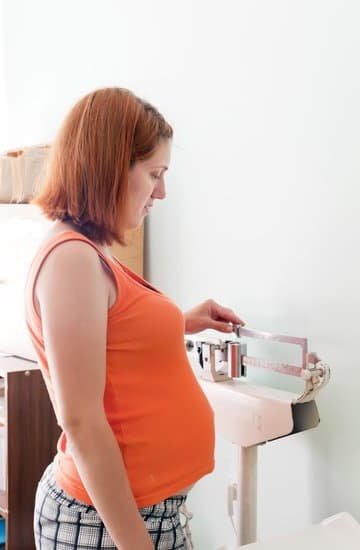Is diarrhea a symptom of pregnancy? During the early stages of pregnancy, women may experience different symptoms that can be attributed to hormonal changes. Diarrhea is a common gastrointestinal issue that may cause concern for expectant mothers. This article aims to explore the relationship between diarrhea and pregnancy, including its potential causes, impact on digestive health, and management strategies.
Diarrhea is a condition characterized by loose or watery stools, commonly accompanied by an increased frequency of bowel movements. When it comes to pregnancy, women often focus on more well-known symptoms such as morning sickness, fatigue, and hormonal fluctuations. However, gastrointestinal issues like diarrhea can also occur due to the changes in hormone levels and physical changes during pregnancy.
Understanding how diarrhea relates to pregnancy is important for expectant mothers. This article will delve into the potential causes of diarrhea during pregnancy, the differentiation between diarrhea and morning sickness as symptoms of pregnancy, as well as when it’s crucial to seek medical attention for this issue. By shedding light on this topic, readers will gain valuable insights into managing diarrhea effectively during their pregnancy journey.
Understanding Diarrhea During Pregnancy
Diarrhea is a common digestive issue characterized by loose, watery stools and frequent bowel movements. During pregnancy, women may experience a variety of symptoms including nausea, fatigue, and changes in appetite. However, many wonder whether diarrhea is a symptom of pregnancy. The answer is yes – in some cases, diarrhea can indeed be a symptom of pregnancy.
The causes of diarrhea during pregnancy can vary, but often hormonal changes play a significant role. An increase in the hormone progesterone can affect the function of the gastrointestinal tract, leading to diarrhea. Additionally, dietary changes and prenatal vitamins can also contribute to digestive issues during this time.
It’s important to differentiate between diarrhea and morning sickness, as they are both potential symptoms of pregnancy. While morning sickness typically involves nausea and vomiting, diarrhea presents with loose stools and abdominal cramping. It’s not uncommon for pregnant women to experience one or both of these symptoms at various points during their pregnancy.
When experiencing diarrhea during pregnancy, it’s essential to monitor the frequency and severity of the symptoms. In some cases, persistent diarrhea can lead to dehydration and electrolyte imbalances that may require medical attention. Pregnant women should consult with their healthcare provider if they experience prolonged or severe diarrhea to ensure the health and safety of both themselves and their baby.
| Causes | Hormonal Changes (Increase in Progesterone), Dietary Changes |
|---|---|
| Symptoms | Loose stools, frequent bowel movements, abdominal cramping |
| Risks | Dehydration, electrolyte imbalances |
Diarrhea vs Morning Sickness
During pregnancy, women experience a variety of symptoms as their bodies undergo significant changes. Two common symptoms that may arise are diarrhea and morning sickness. It is important to differentiate between the two in order to understand how they can both be linked to pregnancy.
Diarrhea is characterized by loose, watery stools that occur more frequently than usual. It can be caused by a variety of factors such as dietary changes, infections, or hormonal fluctuations. This raises the question: “Is diarrhea a symptom of pregnancy?” The answer is yes, as hormonal changes during pregnancy can affect digestion and lead to diarrhea for some women.
On the other hand, morning sickness is often associated with nausea and vomiting, particularly in the early stages of pregnancy. While it shares similarities with diarrhea as a symptom of pregnancy, they are two distinct occurrences that may affect expectant mothers differently. It’s important for pregnant women to monitor their symptoms and seek appropriate care if either becomes severe or persistent.
The fluctuation of hormones like progesterone and estrogen during pregnancy can impact gastrointestinal function, contributing to both diarrhea and morning sickness. Understanding the differences between these symptoms can help expectant mothers better manage their health during this crucial time.
Medical Considerations
During pregnancy, many women experience digestive issues such as constipation, bloating, and nausea. However, diarrhea is also a symptom that some pregnant women may experience. It is important to understand the potential causes of diarrhea during pregnancy and when it is necessary to seek medical attention.
When to Seek Medical Attention
While occasional mild diarrhea is common during pregnancy and may not be cause for concern, persistent or severe diarrhea should prompt a visit to a healthcare professional. Dehydration is a significant risk with prolonged diarrhea, which can be dangerous for both the mother and the developing baby. If you are experiencing diarrhea along with symptoms such as fever, abdominal pain, or blood in the stool, it is crucial to seek medical help promptly.
Potential Complications
Diarrhea can lead to complications such as dehydration and nutrient deficiencies, which can be particularly concerning during pregnancy. Dehydration can affect amniotic fluid levels and increase the risk of preterm labor. Additionally, if essential nutrients are not properly absorbed due to diarrhea, it could impact fetal development. Therefore, it is essential to address persistent or severe diarrhea promptly with a healthcare provider to prevent potential complications.
It’s important for pregnant individuals who are experiencing diarrhea to monitor their symptoms closely and consult with their healthcare provider if they have any concerns about the impact on their pregnancy. Seeking timely medical attention can help ensure the well-being of both the expectant mother and the baby.
Managing Diarrhea During Pregnancy
During pregnancy, experiencing diarrhea is not uncommon and can be a result of various factors. It is essential for pregnant women to manage their symptoms effectively to ensure the health and well-being of both themselves and their unborn baby. Here are some helpful tips for managing diarrhea during pregnancy:
- Stay hydrated: Diarrhea can lead to dehydration, so it’s crucial to drink plenty of fluids such as water, clear broths, and electrolyte-balancing drinks.
- Eat small, frequent meals: Instead of consuming large meals, opt for smaller portions throughout the day to prevent overwhelming your digestive system.
- Avoid triggering foods: Certain foods may aggravate diarrhea, so it’s best to steer clear of spicy, greasy, or high-fiber foods that can exacerbate symptoms.
In addition to these measures, making lifestyle changes can also help alleviate diarrhea during pregnancy. Stress management techniques such as gentle exercise, meditation, and deep breathing exercises can promote overall well-being and aid in digestion. Getting enough rest is also important for supporting the body’s natural healing processes.
Ultimately, if the diarrhea persists or is accompanied by other concerning symptoms such as fever or severe abdominal pain, it is crucial to seek medical attention promptly. In some cases, persistent or severe diarrhea during pregnancy may indicate an underlying condition that requires professional evaluation and treatment.
Additionally, over-the-counter medications should be approached with caution during pregnancy. Some may not be safe for use during this time and could potentially harm the developing fetus. Therefore, always consult a healthcare professional before taking any medication to address diarrhea symptoms while pregnant.
By proactively managing diarrhea symptoms through hydration, diet adjustments, stress management, and seeking appropriate medical guidance when needed, pregnant individuals can navigate this common symptom with greater ease and safety.
When to Consult a Doctor
Seeking Medical Attention
If you are experiencing diarrhea during pregnancy, it is important to know when to seek medical attention. While occasional diarrhea may not be cause for alarm, persistent or severe diarrhea can lead to dehydration and other complications. If you are unsure whether your symptoms warrant a visit to the doctor, it is always best to err on the side of caution and consult a healthcare professional.
Potential Underlying Causes
While diarrhea is commonly associated with pregnancy, it can also be a symptom of an underlying medical condition that may require treatment. In some cases, diarrhea during pregnancy may be caused by food poisoning, infections, or other gastrointestinal issues. It is important to address the root cause of your symptoms in order to receive appropriate care and ensure the health of both you and your baby.
Monitoring Your Symptoms
It is essential to monitor the frequency and severity of your diarrhea symptoms. If you experience additional symptoms such as fever, vomiting, or abdominal pain along with diarrhea, it may indicate a more serious issue that requires medical attention. Keeping track of your symptoms and discussing them with your healthcare provider can help determine the best course of action for managing and treating diarrhea during pregnancy.
Safety of Medications
During pregnancy, many women experience various symptoms that can be confusing and concerning. Diarrhea is a common issue for pregnant women, but is diarrhea a symptom of pregnancy? It’s important to understand the potential causes and treatment options for diarrhea during pregnancy.
Diarrhea is defined as loose, watery stools occurring more than three times in one day. While it is not typically considered a classic symptom of pregnancy, some women may experience diarrhea as a result of hormonal changes, dietary adjustments, or increased stress levels. Pregnancy hormones can affect the digestive system, leading to diarrhea in some cases.
When it comes to managing diarrhea during pregnancy, it’s important to focus on maintaining hydration and replenishing lost nutrients. It’s also crucial to address any potential underlying causes of diarrhea by consulting with a healthcare professional. Certain over-the-counter medications may be safe for managing diarrhea during pregnancy, but it’s essential to seek guidance from a doctor before taking any medication. Some common medications used to alleviate diarrhea symptoms include loperamide and bismuth subsalicylate.
In summary, while diarrhea isn’t always considered a typical symptom of pregnancy, many women do experience this issue during their pregnancies due to various factors such as hormonal changes and dietary adjustments. It’s important to prioritize hydration and nutrient intake when managing diarrhea during pregnancy and consult with a healthcare professional before taking any medications to ensure the safety of the mother and baby.
| Diarrhea During Pregnancy | Key Points |
|---|---|
| Potential Causes | Hormonal changes, dietary adjustments |
| Treatment Options | Hydration, replenishing nutrients, consulting with healthcare professional |
| Safe Medications | Loperamide, bismuth subsalicylate (with doctor guidance) |
Conclusion
In conclusion, diarrhea can indeed be a symptom of pregnancy. While it is not as commonly discussed as other symptoms such as morning sickness or fatigue, it is important for expecting mothers to be aware of this possibility. Diarrhea during pregnancy can be caused by a variety of factors, including hormone changes and dietary adjustments, and may require medical attention in some cases.
It is crucial for pregnant women experiencing diarrhea to understand when to seek medical help. Persistent or severe diarrhea can lead to dehydration and potential complications for both the mother and the baby. Therefore, consulting a healthcare professional is recommended if the symptoms are prolonged or accompanied by other concerning signs.
Overall, managing diarrhea during pregnancy involves making dietary and lifestyle changes, as well as potentially considering safe over-the-counter medications with the guidance of a doctor. It’s important for expectant mothers to prioritize their health and seek proper care when necessary. Remember that every pregnancy is unique, so it’s always best to consult with a healthcare provider for personalized advice and support.

Welcome to my fertility blog. This is a space where I will be sharing my experiences as I navigate through the world of fertility treatments, as well as provide information and resources about fertility and pregnancy.





